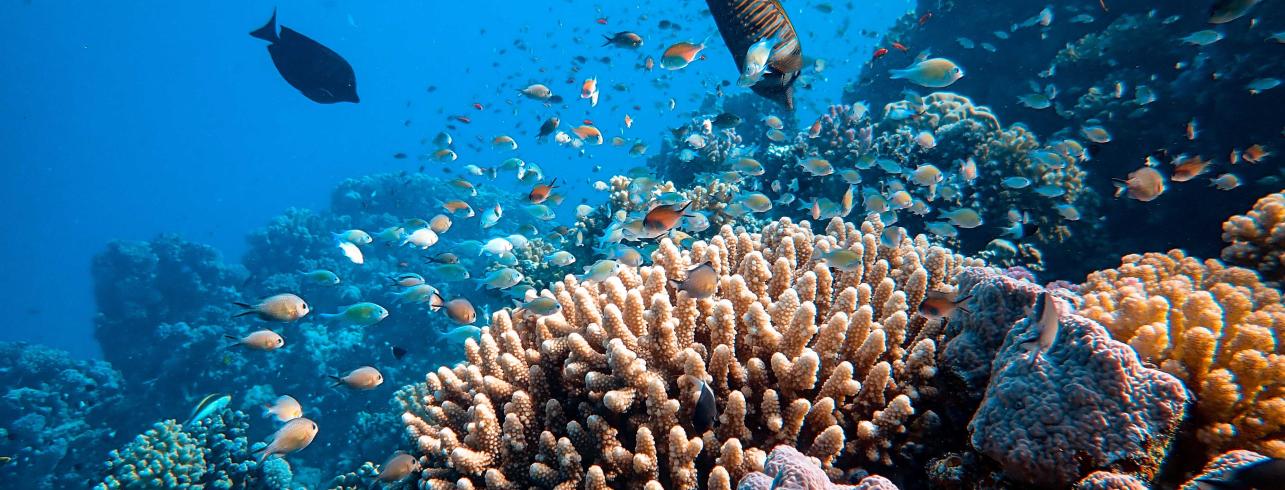
The "High Seas Treaty", a landmark treaty on the conservation and the sustainable use of marine biodiversity in areas beyond national jurisdiction, was signed on September 20, 2023 at the United Nations headquarters in New York.
It is designed to enable the establishment of large-scale marine protected areas on the high seas and thus regulate human activities there, which is also necessary to meet the commitment of the Kunming-Montreal Global Biodiversity Framework to protect at least 30% of the oceans by 2030.
For the first time, the treaty also requires assessment of the impact of economic activities on biodiversity on the high seas. Developing countries will be supported in their participation in and implementation of the new treaty by a major capacity-building and marine technology transfer component, funded by a variety of public and private sources, as well as by an equitable mechanism for sharing the potential benefits of marine genetic resources.
Indeed, the BBNJ treaty represents a significant step forward for mankind in strengthening global ocean governance. It fills existing gaps and fosters cooperation with regional management bodies. By establishing a solid legal framework, the BBNJ treaty enables the effective implementation of innovative tools for better ocean protection.
The following treaty management tools are proposed:
- The creation of zonal management tools, including large-scale marine protected areas on the high seas. This tool is designed to extend protected areas, currently mainly within the territorial waters of states, to areas on the high seas, which are expected to multiply in the years to come.
- Impact studies of human activities on the marine environment will be mandatory for States and their economic operators. Before engaging in any activity on the high seas, States and their operators will have to obtain prior authorisation based on an assessment of their potential impact on the marine environment. They will also be required to demonstrate their commitment to anticipating and preventing potential damage to the marine environment.
- Fair and equitable sharing in the event of commercialisation of products derived from marine genetic resources and their sequencing data. Any state, research institute or laboratory will have to comply with a notification system for organising shipments to collect marine genetic resources (fish, algae) on the high seas.
- Genetic sequencing data, which is intangible information describing genetic material, for example, is also subject to these new rules.
- Support for developing countries in implementing the treaty. This takes the form of capacity building and marine technology transfer, financed by a variety of public and private sources.
A key French mobilisation for successful negotiations
France played a crucial role within the European Union (EU) throughout the negotiation process that began over 18 years ago. France's commitment to protecting the ocean as humanity's common good has been an important driving force in mobilising states on an international scale. The launch of the coalition at the One Ocean Summitin Brest called on states to conclude the treaty as soon as possible, and encouraged them to commit to the most ambitious aspects, such as impact studies, marine protected areas, and the conservation and use of resources in the interests of all mankind.
52 states have joined this initiative, making it an important tool for ratification of the treaty.
The text has been formally adopted by the UN General Assembly on the 19th of June, 2023.
The treaty was signed on the 20th of September, 2023, on the sidelines of the United Nations General Assembly in New York. To date, 82 States have signed the text.
- Ratification: Ratification of the treaty will begin once national parliaments have given their approval and taken the necessary legislative measures to transpose the treaty's obligations at national level. The treaty will enter into force once it has been ratified by 60 states.
The European Commission is committed to speeding up the process and helping developing countries prepare for ratification and implementation of the treaty. The EU has earmarked 40 M € as part of the Global Ocean Program, and is encouraging members of the BBNJ High Ambition Coalition to do likewise to the best of their abilities.
France will also make efforts to rapidly initiate the ratification of the BBNJ treaty, in order to contribute to its entry into force.
Continuing its commitment to the ocean, France will host the next United Nations Ocean Conference in Nice in 2025, in collaboration with Costa Rica. This conference will provide an opportunity to continue raising awareness with a view to bringing the BBNJ treaty into force.
